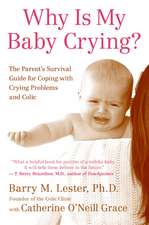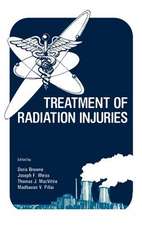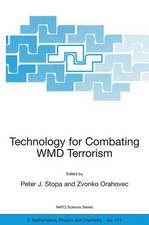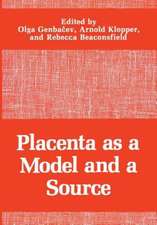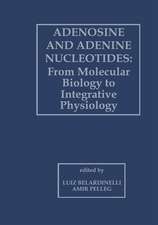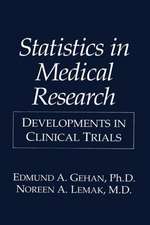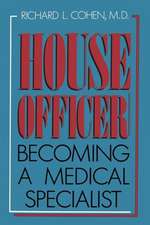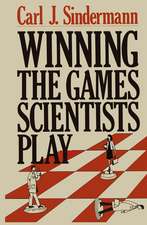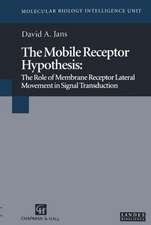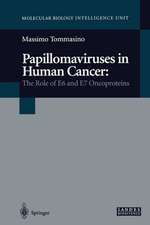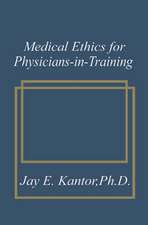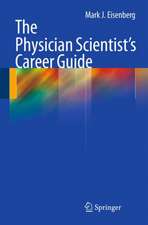Life, Love and Children: A Practical Introduction to Bioscience Ethics and Bioethics
Autor Irina Pollarden Limba Engleză Hardback – 30 noi 2002
Early chapters embrace topics affecting human reproduction – substance abuse and parenthood, aging gametes and congenital malformations, child abuse and its biological consequences.
Intermediate chapters deal with end-of-life care and euthanasia, human fertility, assisted reproductive technologies, genetic engineering, and cloning.
Remaining chapters challenge human-dominated ecosystems. Population growth, economic activity, and warfare – with its environmental consequences – are reviewed. A background section describes the evolution of ethical consciousness, explores the future, and proposes that the reworking of ethical boundaries can enhance mature decision-making in harmony with changing technology.
| Toate formatele și edițiile | Preț | Express |
|---|---|---|
| Paperback (1) | 368.57 lei 6-8 săpt. | |
| Springer Us – 23 oct 2012 | 368.57 lei 6-8 săpt. | |
| Hardback (1) | 376.22 lei 6-8 săpt. | |
| Springer Us – 30 noi 2002 | 376.22 lei 6-8 săpt. |
Preț: 376.22 lei
Preț vechi: 396.02 lei
-5% Nou
Puncte Express: 564
Preț estimativ în valută:
71.100€ • 74.89$ • 59.44£
71.100€ • 74.89$ • 59.44£
Carte tipărită la comandă
Livrare economică 15-29 aprilie
Preluare comenzi: 021 569.72.76
Specificații
ISBN-13: 9781402072949
ISBN-10: 1402072945
Pagini: 292
Ilustrații: XVII, 269 p.
Dimensiuni: 155 x 235 x 21 mm
Greutate: 0.6 kg
Ediția:2002
Editura: Springer Us
Colecția Springer
Locul publicării:New York, NY, United States
ISBN-10: 1402072945
Pagini: 292
Ilustrații: XVII, 269 p.
Dimensiuni: 155 x 235 x 21 mm
Greutate: 0.6 kg
Ediția:2002
Editura: Springer Us
Colecția Springer
Locul publicării:New York, NY, United States
Public țintă
ResearchCuprins
1 Historical Perspective.- The Hunter-Gatherers Homo sapiens.- On the Evolution of Ethics.- Bioethics.- Bioscience Ethics.- Principle of Bioscience Ethics for Discussion.- 2 Inappropriate Lifestyle and Congenital Disability in Children: Basic Principles of Growth, Toxicology, Teratogenesis and Mutagenesis.- Patterns of Human Growth.- The Embryonic/Fetal Periods and Embryo Staging.- The Placenta as the Maternal-Fetal Interface.- Abnormal Prenatal Growth Patterns.- Toxicology: Basic Principles.- Teratogenesis, Mutagenesis, and Carcinogenesis.- Principle of Bioscience Ethics for Discussion.- 3 Substance Abuse and Parenthood: Biological Mechansims — Ethical Responsibilities.- Behavioral Variables — Biological Consequences.- Behavioral Variables — Bioethical Challenges.- 4 Ovulatory Method of Birth Control: Aging Gametes and Congenital Malformations in Childern.- The Laws of Inheritance.- Human Fecundity.- Female Libido: Procreational versus Recreational Sex.- Principles of Reproductive Aging.- Aging Gametes and Ovulatory Method of Birth Control.- The Gametopathy Hypothesis and Congenital Anomalies.- Principle of Bioscience Ethics for Discussion.- 5 Understanding Child Abuse and Its Biological Consequences.- Unwanted Birth and Crime.- Post Traumatic Stress Disorder or the Physical Signature of Unresolved Trauma.- The Biology of Behaviour and Cognition.- Stress and Psychosocial Short Stature.- Future Prospects?.- Principle of Bioscience Ethics for Discussion.- 6 The State of Wellbeing: on Health and Ill-health.- Basic Principles of Wellbeing or in Control of our Destiny.- 7 The State of Wellbeing: On the End of Life Care and Euthanasia.- Criteria for Re-Defining the Beginning and End of a Life.- Euthanasia, an Evolving Concept.- Principle of Bioscience Ethics forDiscussion.- 8 Procreative Technology: Achievements and Desired Goals.- Fertility Control — the Evolutionary Perspective.- Infertility — the Price of Excess Fecundity.- Assisted Reproduction: Social Considerations.- Assisted Reproduction: Technological Considerations.- Artificial Insemination.- In vitro Fertilization and Related Technologies.- Intracytoplasmic Sperm Injection and Cytoplasmic Transfer Technologies.- Maturing Human Eggs in the laboratory.- Surrogacy.- Principle of Bioscience Ethics for Discussion.- 9 The Recombinant DNA Technologies.- Genetic Engineering and Related Technologies — Biological Perspective.- The Human Genome and the Human Genome Diversity Projects.- 10 Cloning Technology.- What is a Clone?.- Reproductive Cloning: Basic Principles.- Embryonic Stem Cell or Therapeutic Cloning.- Reproductive cloning: Ethical Considerations.- Principle of Bioscience Ethics for Discussion.- 11 Human Dominated Ecosystems: Re-Evaluating Environmental Priorities.- Population Growth and Economic Activity — Are we Overstraining our Limits?.- Understanding Living Cycles and Anticipating Environmental Policies Rather than Relying on Remedial Measures.- 12 Human Dominated Ecosystems: Reclaiming the Future by Taking Due Account of Following Generations.- Self-Destructive Behavior and the Environment.- 13 Human Dominated Ecosystems: Warefare Fitness Enhancement or Losing Strategy.- The Institution of War.- The Tragedy of Conflict.- Biological Warfare.- Virtual Warfare.- The Legacy of War on Future Generations.- Principle of Bioscience Ethics for Discussion.- 14 Human Dominated Ecosystems: Reworking Bioethical Frontiers.- Global Responsibility — a Transboundary Dètente to Developmental Needs and Environmental Preservation.- Stewardship of Mother Earth — inDefense of the Global Commons.- Selected Bibliography.

